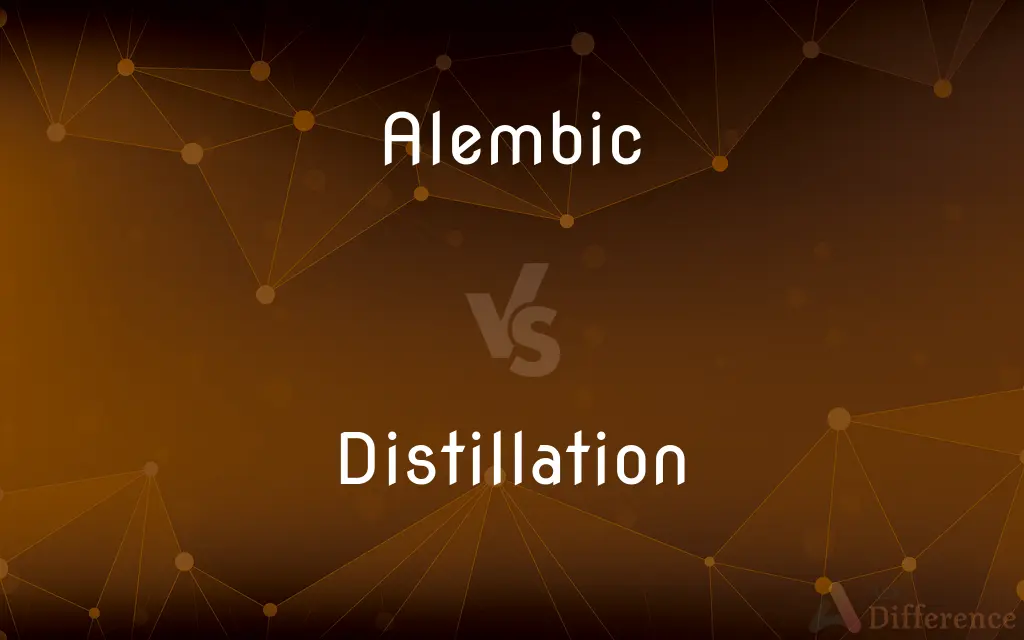Alembic vs. Distillation — What's the Difference?

Difference Between Alembic and Distillation
ADVERTISEMENT
Compare with Definitions
Alembic
An alembic (from Arabic: الإنبيق, romanized: al-inbīq, originating from Ancient Greek: ἄμβιξ, romanized: ambix, 'cup, beaker') is an alchemical still consisting of two vessels connected by a tube, used for distillation of liquids.
Distillation
Distillation, or classical distillation, is the process of separating the components or substances from a liquid mixture by using selective boiling and condensation. Dry distillation is the heating of solid materials to produce gaseous products (which may condense into liquids or solids).
Alembic
An apparatus consisting of two vessels connected by a tube, formerly used for distilling liquids.
Distillation
The evaporation and subsequent collection of a liquid by condensation as a means of purification:the distillation of water.
Alembic
A device that purifies or alters by a process comparable to distillation.
ADVERTISEMENT
Distillation
The extraction of the volatile components of a mixture by the condensation and collection of the vapors that are produced as the mixture is heated:petroleum distillation.
Alembic
An early chemical apparatus, consisting of two retorts connected by a tube, used to purify substances by distillation.
Distillation
A distillate.
Alembic
An apparatus formerly used in distillation, usually made of glass or metal. It has mostly given place to the retort and worm still.
Distillation
The act of falling in drops, or the act of pouring out in drops.
Alembic
An obsolete kind of container used for distillation; two retorts connected by a tube
Distillation
That which falls in drops.
Distillation
The separation of more volatile parts of a substance from less volatile ones by evaporation and condensation.
Distillation
Purification through repeated or continuous distilling; rectification.
Distillation
(petroleum) Separation into specific hydrocarbon groups; fractionation.
Distillation
The substance extracted by distilling.
Distillation
The act of falling in drops, or the act of pouring out in drops.
Distillation
That which falls in drops.
Distillation
The separation of the volatile parts of a substance from the more fixed; specifically, the operation of driving off gas or vapor from volatile liquids or solids, by heat in a retort or still, and the condensation of the products as far as possible by a cool receiver, alembic, or condenser; rectification; vaporization; condensation; as, the distillation of illuminating gas and coal, of alcohol from sour mash, or of boric acid in steam.
Distillation
The substance extracted by distilling.
Distillation
The process of purifying a liquid by boiling it and condensing its vapors
Distillation
A purified liquid produced by condensation from a vapor during distilling; the product of distilling
Share Your Discovery

Previous Comparison
Quadrangle vs. Quadrilateral
Next Comparison
Essential vs. Compulsory














































